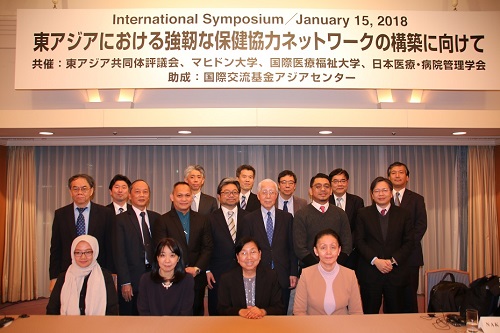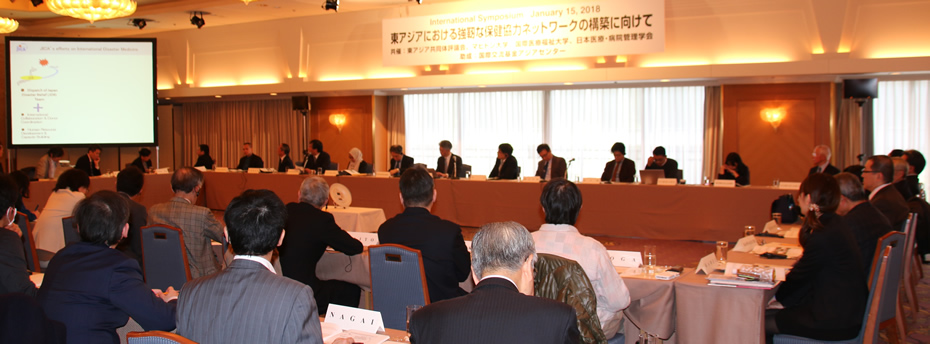Reasearch and Policy Recommendation
Research Project on
"Towards Building a Resilient Network
for Regional Health Cooperation in East Asia"
From 2017, May To 2018, March
The Council on East Asian Community

In recent years, East Asia has been rapidly emerging as “hub of development” of the world, on the one hand. On the other hand, the key for sustainable development in East Asia is to enhance cooperation in the fields that are closely related to economy, not to mention economic cooperation within the region per se. Among them, the most important in demand is the field of health. Currently in East Asia, the side effects of globalization, such as increases in the numbers of natural disasters and the victims as a result of climate change, spread of communicable diseases due to the enhanced connectivity within the region, and acceleration of declining birth rate and aging as the repercussions of improved medical technology, have become evident. And yet, it is hardly possible for each state alone to respond to these issues, and building a resilient network for regional health cooperation in East Asia has become an urgent task at stake.
In light of this, Japan which pursues “proactive pacifism” has taken the initiative in international health cooperation, as seen in “G7 Ise-Shima Vision for Global Health” published subsequent to the Ise-Shima Summit last year. That heightens expectation for Japan’s role in leading the building of a network for health cooperation in East Asia.
Seeing the emergence of issues and responses as such, CEAC has conducted a research project titled: “Towards Building a Resilient Network for Regional Health Cooperation in East Asia” led by IKEDA Shunya, Professor at International University of Health and Welfare in Japan this year.
[Main Activities]
1. International Symposium "Towards Building a Resilient Network for Regional Health Cooperation in East Asia" Held

- Date: 13:30 to 18:00, Monday, 15 January, 2018,
- Venue: "Orchard Room," Hotel Okura
- Co-sponsored: Mahidol University Global Health (MUGH), etc.
- Supported: Japan Foundation Asia Center
- Participate: 76
